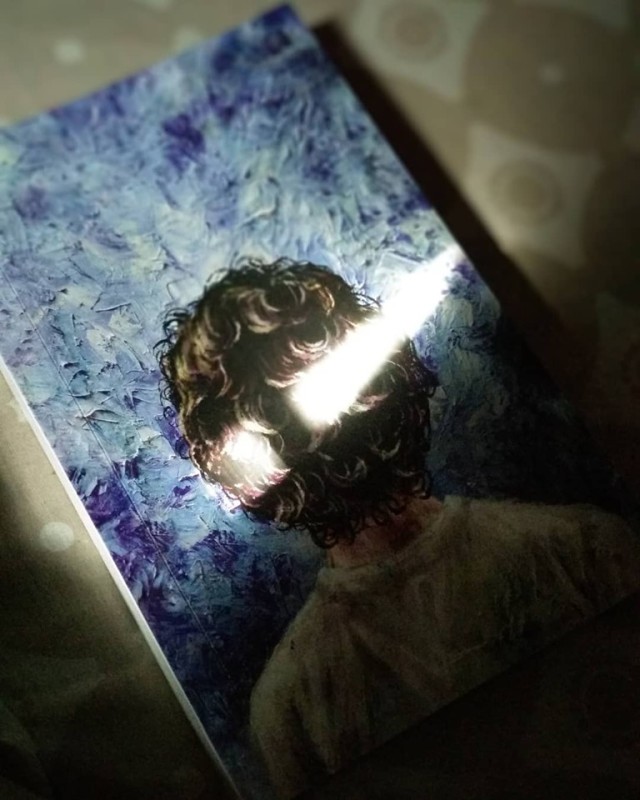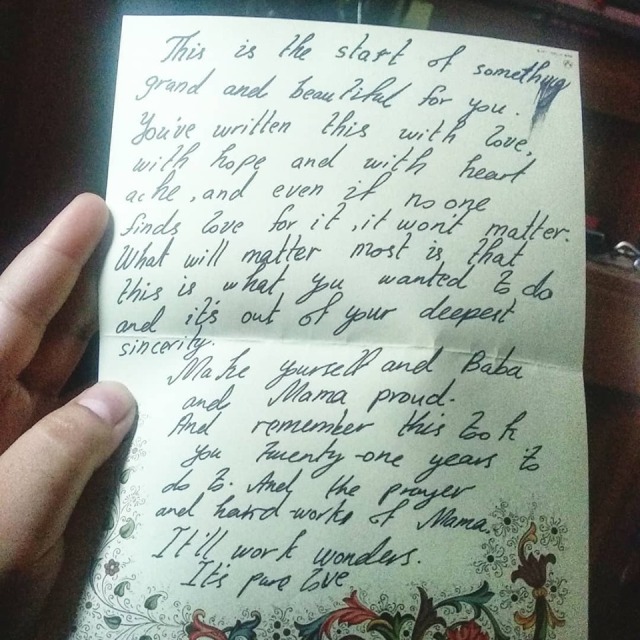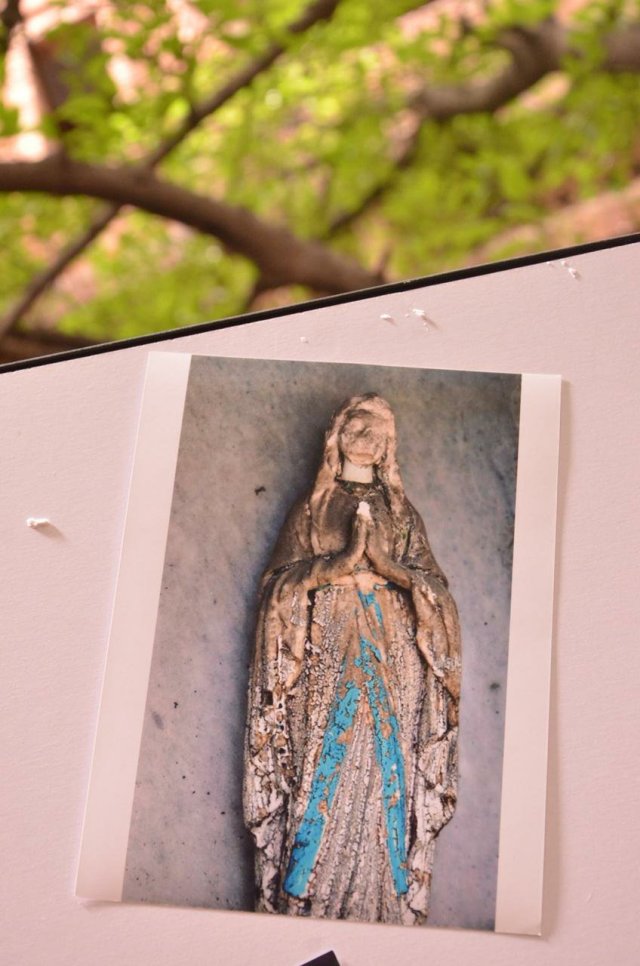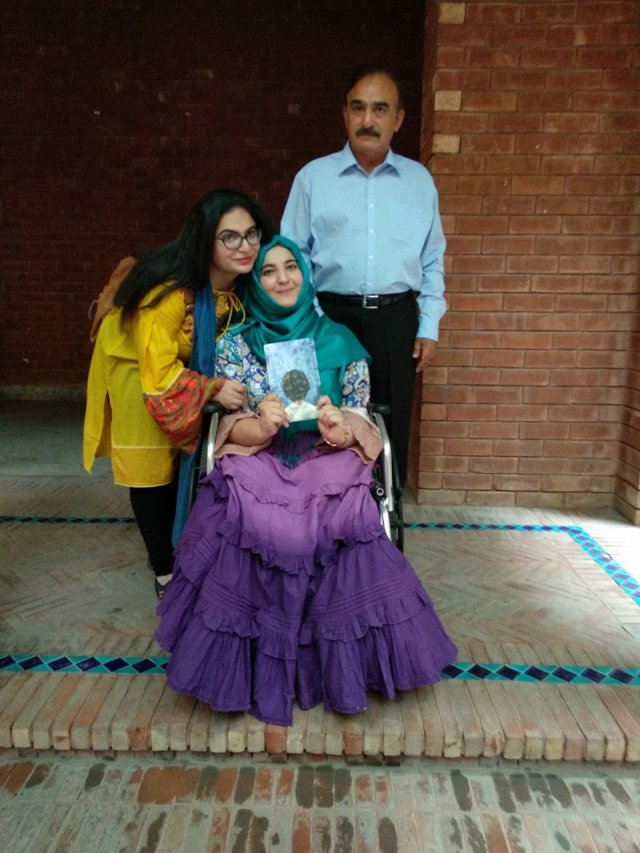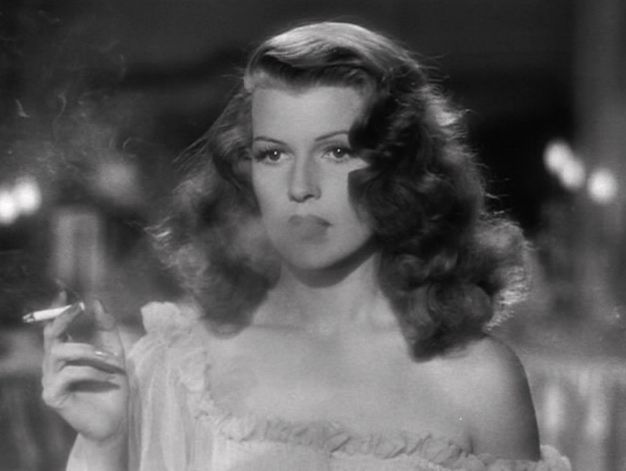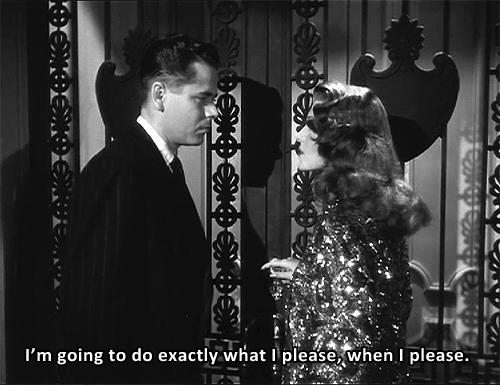Hi there,
So I know that I have infrequent…again, but I had exams and other responsibilities to ignore. But I am back now for some time. And I am going to posting the things that I have been up, which hopefully be enjoyable .
Plus later today I am going to be posting two short stories that just popped into my head out no where.
Thank you for being patient with me.
Sexism can be described as a derogatory or prejudiced stance against women, and when it comes to D.H Lawrence and his novels, either due to the time he lived in or due to personal beliefs; do show traits of being anti-women and anti-feminist. Their portrayal may be lovely and full of personality and they may show strength as character, but overall in the text they are subject to misogyny and the end result stems into an image of women craving domination from men.
‘Sons and Lovers’, is a novel which starts with a female character, who is young and intelligent with dreams. She falls for the wrong brute and in marriage with him, her life and lifestyle goes downhill, and she grows smaller from there, until her son emerges as the protagonist. Her name Gertrude, is only mentioned twice in the novel, and she is becomes more of a broken idol than a character. The images we have of her are of someone who gives and gives, which the men around her take in. She is a life source for Paul, but alongside being a caring mother, she is viewed as a parasite.
She devotes herself to house work and we see that there is little intimacy between her and her husband, and their actions around each other, showcase a conservative time, when women listened to their husbands. She is not trusted with the information of their financial position; she tends to the house on her own but she is unable to leave this abusive and emotionally draining household.
The thing is that, when it comes to Lawrence, his work and sexism, it is not in a way of giving them less struggle, less humanity, less importance textually or lesser lines but by giving them the experience of misogyny. At least that is what happens in this text specifically. Mrs. Morel is a passionate lady, who has dreams and went after her heart, and instills ideals in her children but she is not liberated. The reader becomes close to her due to her suffering, and slowly she becomes a lesser object as Paul grows, and she battles for his love and he is the one who entitled, enough to decide that he wants to push her in the face of death.
But Paul’s entitled attitude towards his mother begins early on. Mrs. Morel does begin to live through her two older boys, William and Paul, and she dreams of being a man as well, but she does have the insight, privilege or experience of a man of her time. She can only imagine it, while her sons have the actual upper hand, and in having it they look down or objectify the women around them. Which further implies that they don’t truly love her, but are in a battle for her, which is a theme explored through the obvious Oedipus complex in the text.
Like when the father has to be in the hospital after a terrible accident, a young Paul is full of joy of being alone with his mother now. He says “I’m the host of the house now”, and he discusses this dream of having his mother to himself after the father’s death several times. So it is not really liberation for the mother, but more of a battle or grudge in the mind and soul of the protagonist Paul.
The desire of the mother to have her sons change her life can be seen as natural due to their financial position, but with reference to sexism and Lawrence, it is symbolic of many of his stories in which a woman has to decide between a brute and a gentle soul. He incorporates sex with gender and comes to the conclusion that a women is happy when a more brutish and aggressive man is in charge.
The mother later on, like the other women become people who suck life out of the men in their life, which contradicts the nurturing stereotypes of women. One in which they aid growth and give birth to life, but William does die during an affair. And there is consent talk about neither of Paul’s love interests will allow him to be a real man. Paul even decides early on never to marry and he thinks of women as prisons, and that he could bring himself that low.
But one must wonder, if it is important for Paul to grow into a real man, and that has to be brought about by sexual escapades, then about Miriam’s development into a real woman?
She comes forward as a shy young girl, who wants to be more than what she is, and is eager to learn from Paul, because being a woman she does not have access to the things he has. She provides him with friendship, spirituality and insight and begins to love him, but very little detail is provided to her personal or mental development as a woman.
There are small references to her attempts or sexual advances at Paul, but he rejects them all, because he is the one unable to see her as a fellow sexual being. Paul in his misogynistic disposition has to distance her from a sexual drive, in order to acknowledge her. He does not view her as a full human that she is, which is rather limiting and sexist, which damages them both, but for what he can use her for he does.
Miriam is unable to do that, and it actually stunts her development rather than elevate it, because she is hurt by it, which is probably why she is so attached to religion and becoming a sacrifice for Paul’s love. It is all that she can get from him.
He even repeats to her “You are a nun. You are a nun”.
Yet since the sexual tension is present, he struggles to free himself to her, once his use is fulfilled. She is well aware of it, but since she has no power to stop him, or to exert her fantasy of him on to the reality of him, she suffers as his nun.
Paul’s second love interest becomes nothing more but a sex object for him, and he again takes what can from her, without equally giving back in the relationship. More than that he looks down at her and is unable to connect with her on a spiritual level or to even remotely form a bond with her. Clara is his “passion of a pleasant sensation”, “passion of baptism of fire”, and an affair which is purely based on his desire of a woman he otherwise does not respect or care for. He even shakes her away to her husband when his use if fulfilled.

This dynamic of Paul only finding one thing in two women may be reflective of his Madonna-Whore complex, but that does not mean that either of the two women are incapable of being a complete woman, one of is both spiritual and sexual. And his division of such is a projection of his own internal split and shame. But overall it is of a sexist nature and undertone, which limits both the women.
Lawrence uses the three of these women to emphasize the strength and importance of female companionship when it comes to the development of men. But beneath all of that is the selfish and sadistic nature of Paul who comes to ruin and damage all three of them, despite having love for them.
So while he is responsible for his actions, he is still better off because he is a man in a misogynistic world, while the women also responsible have only achieved failure. They fade away while Paul walks back into the dim city with his future.
Thus so far the feminist critique of Lawrence is correct, and Kate Millet who was such a critique insisted that, Lawrence worshipped the phallus as a totem of power and authenticity. She saw that in his work that the men dominate while women are dominated and that men are individuals where as women are selfless absences. His writing is a gendered body of work, reaching out to women with sex and dominance and horror and love. Even without a body the body owns you- an insight which respond to revulsion, and sometimes joy.
And that speaks truth of Paul, like when he sacrificed the doll with a smile. He sacrificed the other three with the same entitled guilt, like when he killed his mother and turned down Miriam and went by without punishment.
But there are people who insist that he was a feminist, like in one article a professor argues that “ a case should be made for Lawrence as a feminist. Women are more often than not his central characters. He often writes about girls; hardly ever about boys. His heroines – like his wife – are strong, by any standards in twentieth century fiction; submissive women are only ever minor characters. When they argue with their partners, as they often do, they give as much as they argumentatively get. Mr Noon‘s narrator says about the hero (who ressembles Lawrence): ‘he had found his mate and his match. He had found one who would give him tit for tat, and tittle for tattle.’ His women have sexual appetites, and orgasms, and sex before and outside marriage; they are presented without fetishisation or disapproval; such women had never been seen in English fiction before. Female virginity, which was such a crucial value in fiction before Lawrence, meant nothing to Lawrence. What mattered to him were profound sex and meaningful connection between people who are, somewhere, each other’s mates and matches. He loathed the way his period sexualised women. He would also have loathed the promiscuity for which he became a poster boy in the 1960s.. it isn’t always the case that when a writer is being most unlikeable, their writing is at its weakest; but the rule works pretty well for Lawrence. His most male-orientated works include some of his weakest, whereas The Rainbow, Women in Love, ‘Odour of Chrysanthemums’, ‘Sun’, and Lady Chatterley’s Lover are all centrally about strong female characters trying to find their path in life.c
Thus to conclude, there is criticism on both sides regarding sexism and gender prejudice when to ‘Sons and Lovers’, and I would agree that the text is sexist towards women.
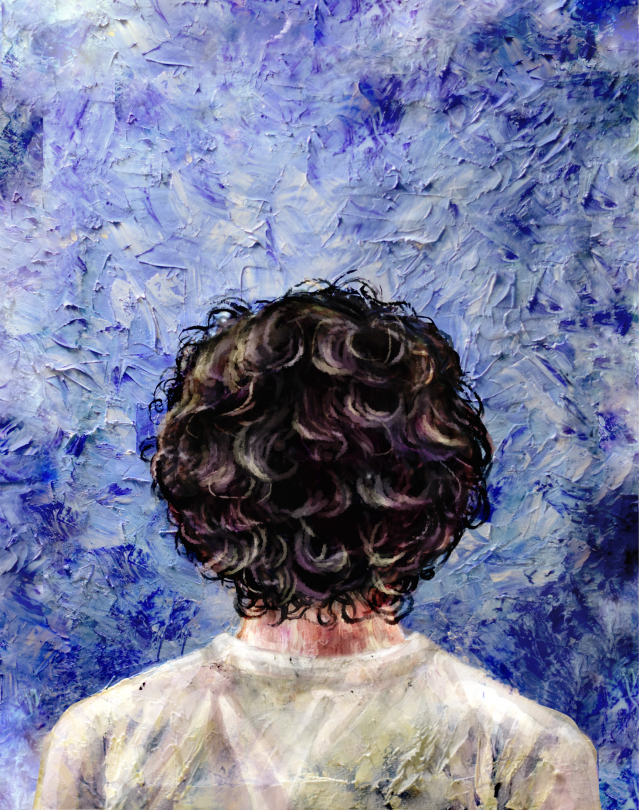 Hey everyone. I hope everything has been fine and blessed on your end, and today I’m going to talk about something very special and close to my heart.This year I got the chance to publish and launch my poetry book ‘Ramiz’. I had been working on it for about three or four years as a concept for a proper book, there had been multiple delays and distractions in between that got in the way. But that’s fine, because it wasn’t until this passing December that I finally felt that Ramiz was complete and ready for the world.So I’m going to talk about what Ramiz is about . Ramiz was a cousin of mine who we lost a couple of years ago, he died in between my uncle and my mama. During that time I wasn’t really writing anything, I was out of pretty much everything. I had given up on a lot of things. It was during that time that I wrote one poem about Ramiz, with his name as the title, on a rough page with black ink. And by some miracle I never lost that singular,flimsy page. Years after that I thought about writing more poems along the same theme,sound and feel. Initially it was about thirty pages, which I thought this was enough. By this time I was in my university, the first semester, I was working for my publisher and I figured that everything would happen really fast. But I kept on delaying things myself.So fast forward three years, Ramiz was completed with about fifty poems, one short story and one personal essay, and at the brink of the final semester. I wouldn’t really call the end perfect. I wasn’t able to fulfill the complete the mental image that I wanted, and everyone I wanted to be there wasn’t able to make it. But I’ve learned to not be so obsessed with images and dreams and take things as they are, and walk out of my mind. I was also able to have my first photography exhibition on the same day. My father was there, and I spoke rather well on stage, so I guess everything turned out fine.
Hey everyone. I hope everything has been fine and blessed on your end, and today I’m going to talk about something very special and close to my heart.This year I got the chance to publish and launch my poetry book ‘Ramiz’. I had been working on it for about three or four years as a concept for a proper book, there had been multiple delays and distractions in between that got in the way. But that’s fine, because it wasn’t until this passing December that I finally felt that Ramiz was complete and ready for the world.So I’m going to talk about what Ramiz is about . Ramiz was a cousin of mine who we lost a couple of years ago, he died in between my uncle and my mama. During that time I wasn’t really writing anything, I was out of pretty much everything. I had given up on a lot of things. It was during that time that I wrote one poem about Ramiz, with his name as the title, on a rough page with black ink. And by some miracle I never lost that singular,flimsy page. Years after that I thought about writing more poems along the same theme,sound and feel. Initially it was about thirty pages, which I thought this was enough. By this time I was in my university, the first semester, I was working for my publisher and I figured that everything would happen really fast. But I kept on delaying things myself.So fast forward three years, Ramiz was completed with about fifty poems, one short story and one personal essay, and at the brink of the final semester. I wouldn’t really call the end perfect. I wasn’t able to fulfill the complete the mental image that I wanted, and everyone I wanted to be there wasn’t able to make it. But I’ve learned to not be so obsessed with images and dreams and take things as they are, and walk out of my mind. I was also able to have my first photography exhibition on the same day. My father was there, and I spoke rather well on stage, so I guess everything turned out fine. So what is Ramiz about?Ramiz, I guess the book about dealing with someone not being there. Someone slipping away, and you having to live them no being there. It’s about feelings of loss,change,regret and pain, all packaged in symbols and beauty, without taking any names.It’s also about nostalgia, or the relationship we have with time, and how unreal it can feel at times, as nothing makes sense and we don’t know how to react to anything.It’s about love.And as a whole the book is about growing up, having personal closure and letting everything go.And I feel like it’s development mirrors my own growth and journey as a a mature person. The world just feels more open and welcoming now. It practically made me see the value in art and literature.Apart from that I want to say the writing is fairly simple, and easy to read. The color blue is very important to the context, images and theme of the book, I sort of inserted it into everything. And lyrically and sonic-ally the sounds follow a lot of nursery rhymes and slowly grow into more complex and dense sounds.And I’m going to keep on writing the future also, and have some fun ideas to work on. But I don’t think I will be able to give it the same dedication, tears and love as I have given Ramiz. Something so natural to my destiny.
So what is Ramiz about?Ramiz, I guess the book about dealing with someone not being there. Someone slipping away, and you having to live them no being there. It’s about feelings of loss,change,regret and pain, all packaged in symbols and beauty, without taking any names.It’s also about nostalgia, or the relationship we have with time, and how unreal it can feel at times, as nothing makes sense and we don’t know how to react to anything.It’s about love.And as a whole the book is about growing up, having personal closure and letting everything go.And I feel like it’s development mirrors my own growth and journey as a a mature person. The world just feels more open and welcoming now. It practically made me see the value in art and literature.Apart from that I want to say the writing is fairly simple, and easy to read. The color blue is very important to the context, images and theme of the book, I sort of inserted it into everything. And lyrically and sonic-ally the sounds follow a lot of nursery rhymes and slowly grow into more complex and dense sounds.And I’m going to keep on writing the future also, and have some fun ideas to work on. But I don’t think I will be able to give it the same dedication, tears and love as I have given Ramiz. Something so natural to my destiny.